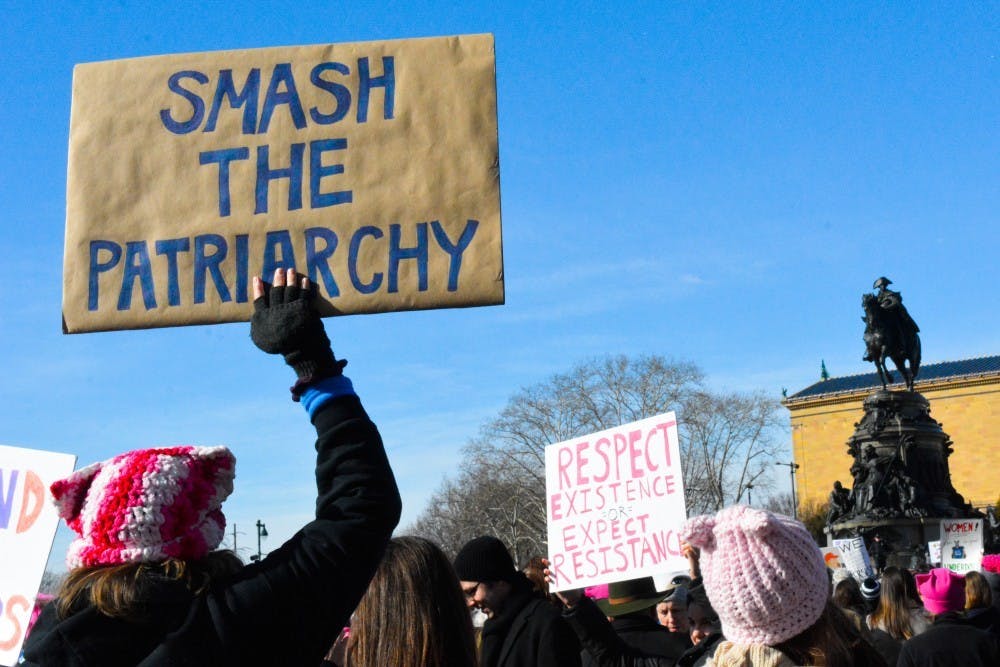One year after Trump's inauguration and the first ever Women's March, tens of thousands of protesters returned on Jan. 20, armed with posters with sayings from "a woman's place is in the House and in the Senate" to "girls just want to have fun—damental rights."
Penn students and faculty joined Philadelphians in Logan Square for the second Philadelphia Women’s March and the subsequent rally, which was organized by a group called Philly Women Rally.
Event organizer Salima Suswell says that while the march may not become an annual tradition, Philly Women Rally will continue to “assist with the empowerment and advancement of all women.”

Penn political science professor Rogers Smith was one of the group of Penn political science professors who attended the march with their families.
“Social movements of various sorts have often shifted the agendas of policy makers who otherwise may be simply attentive to the donors,” Smith said. “But when they see that there are strong public sentiments they can’t afford to ignore that.”
Fellow political science professor Julia Lynch agreed.
“You can’t really have a functioning democracy without an activated public,” Lynch said.
RELATED:
Signs and scenes from the Women's March on Philadelphia
Academics, activists, and students gathered at Penn this weekend to discuss women in politics

She added that the discontent with the government many Americans are facing is due to 30 years of inactivity and silence.
Many at the rally, which included Philadelphia Councilwoman Maria Quiñones-Sánchez and Congresswoman Joanna McClinton, stressed the comparatively small number of women serving as representatives for Pennsylvania at both the state and federal level.
As of June 2017, the state fell 49th nationally in terms of female representation.
Katie Rader, a third-year doctoral student in political science, said that while she was surprised to find out how few women have been elected to office in Pennsylvania, increasing female representation is only a start.
“I do not think that representational politics solve all the problems,” Rader said. “Just getting women into office is a huge deal but it’s not the only answer. We need to get women in who are going to advocate for policies that protect and help other women.”
Zachary Smith, fellow third-year Ph.D. student in political science, added that this issue extends beyond the American government.
“At a university level, I think it’s really important for Penn to hire and train more women in political science,” Smith said.
He explained that political science tends to be dominated by white men, which limits the scope of the field as a whole.
College junior and Penn Democrats Outreach Director Elise Reynolds added that these sort of events helps affect change outside of campus. She added that Penn Dems sent approximately 40 students to the march.
“It’s really great to have these on-campus conversations,” Reynolds said. “But, they only go so far as our actions follow them.”



